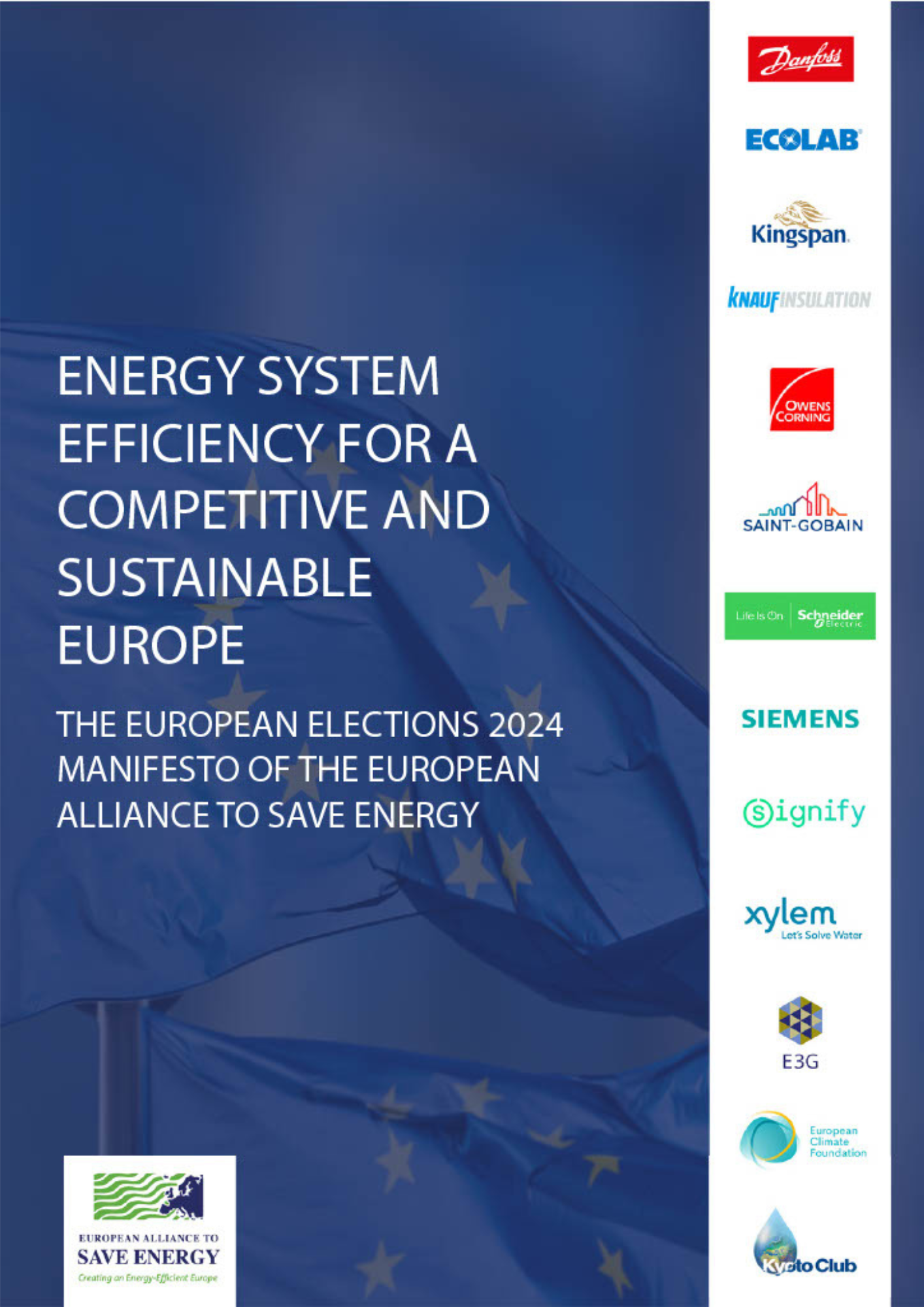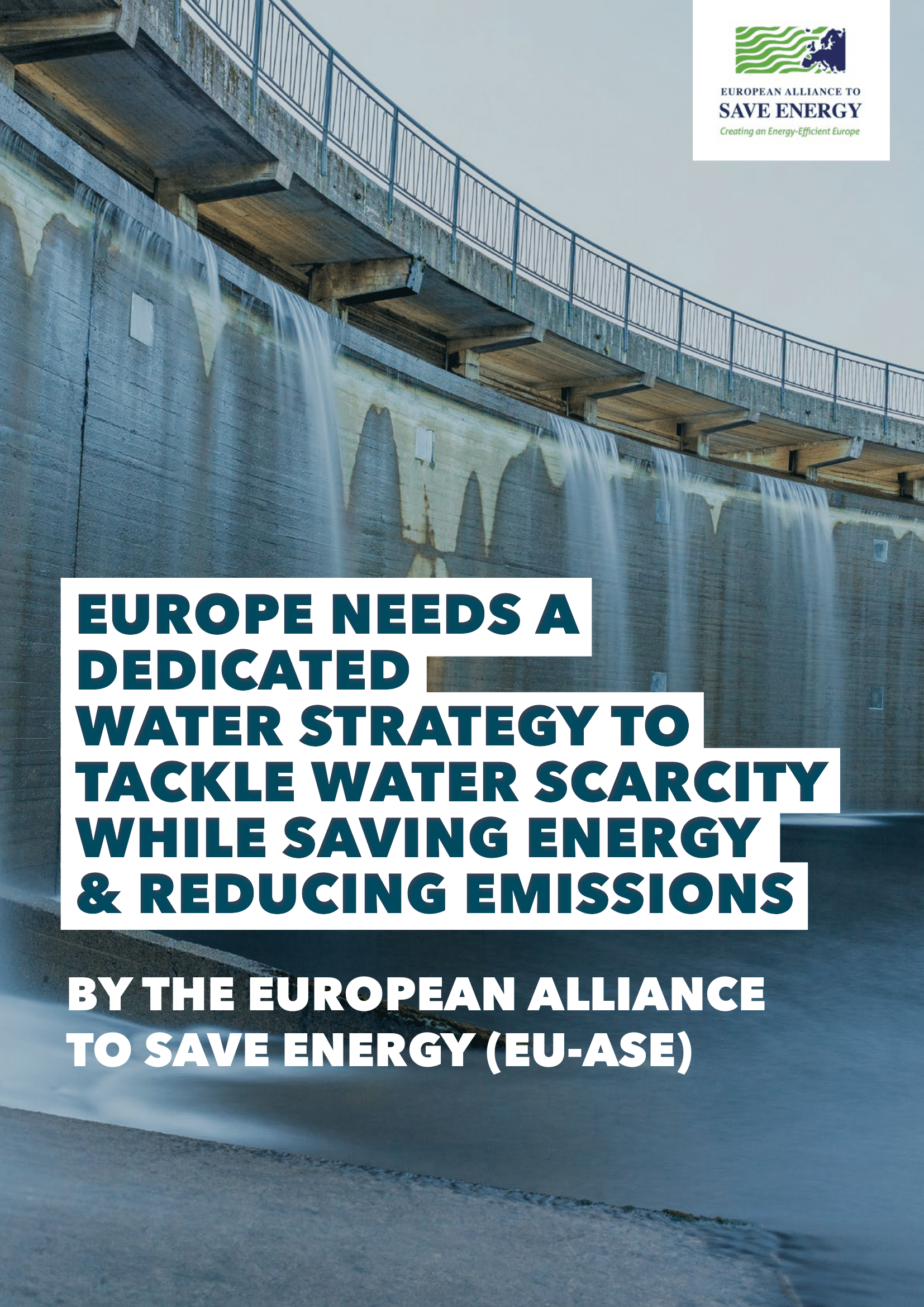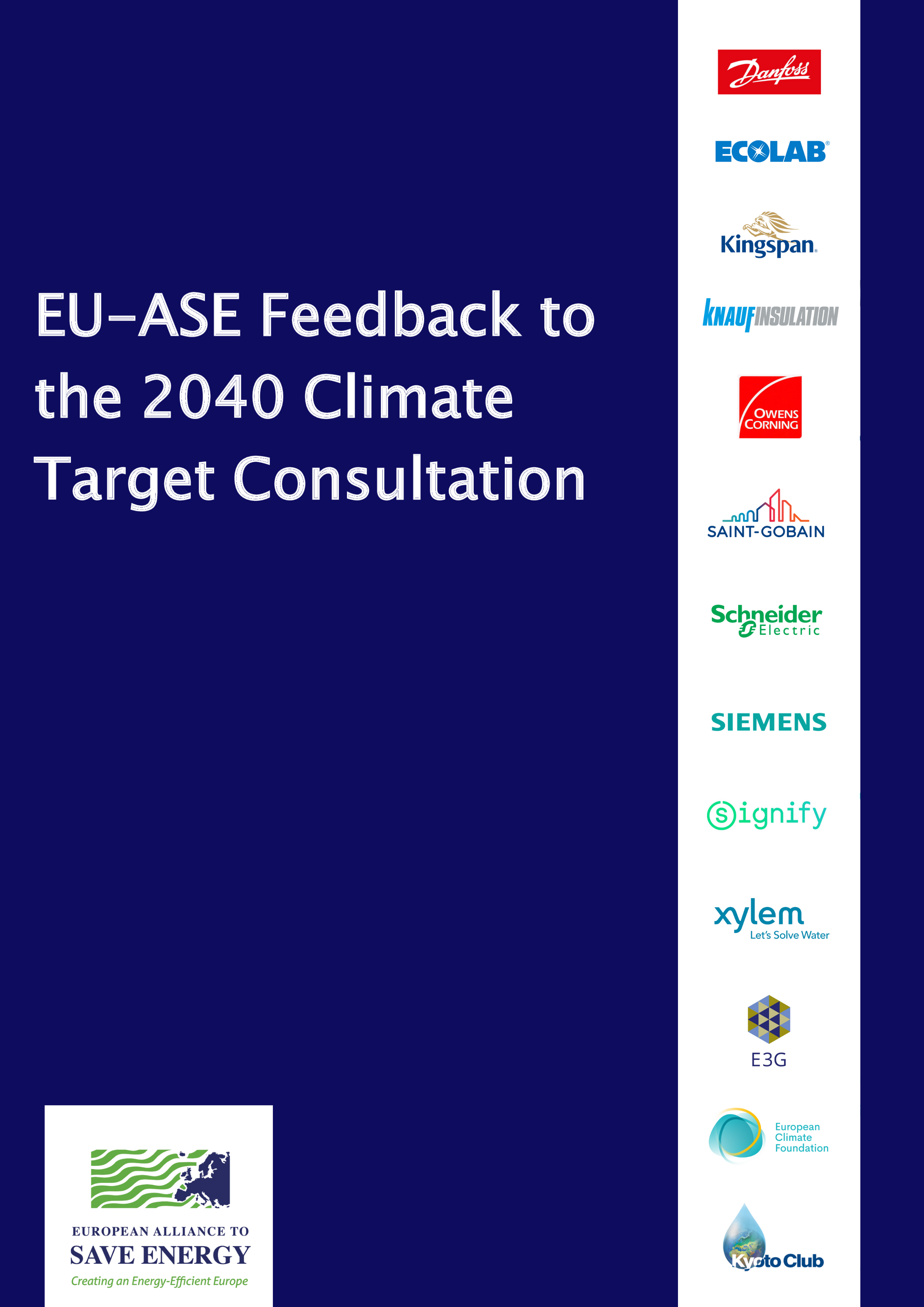EU-ASE Response to the EU Fitness Check on Energy Security Architecture

The European Alliance to Save Energy (EU-ASE) welcomes the opportunity to provide feedback to the EU Fitness Check on Energy Security Architecture.
The Recent geopolitical crises and heightened climate risks have underscored the urgent need for a resilient and independent EU energy security framework. While the EU has made notable advances in reducing fossil fuel imports following the Russian invasion of Ukraine, the reliance on other non-EU countries remains a significant vulnerability.
We advocate for a comprehensive and systematic approach to energy system efficiency (ESE) to achieve genuine independence from fossil fuels, thereby increasing energy security, fostering EU competitiveness and supporting a smooth, inclusive transition for all Europeans.




